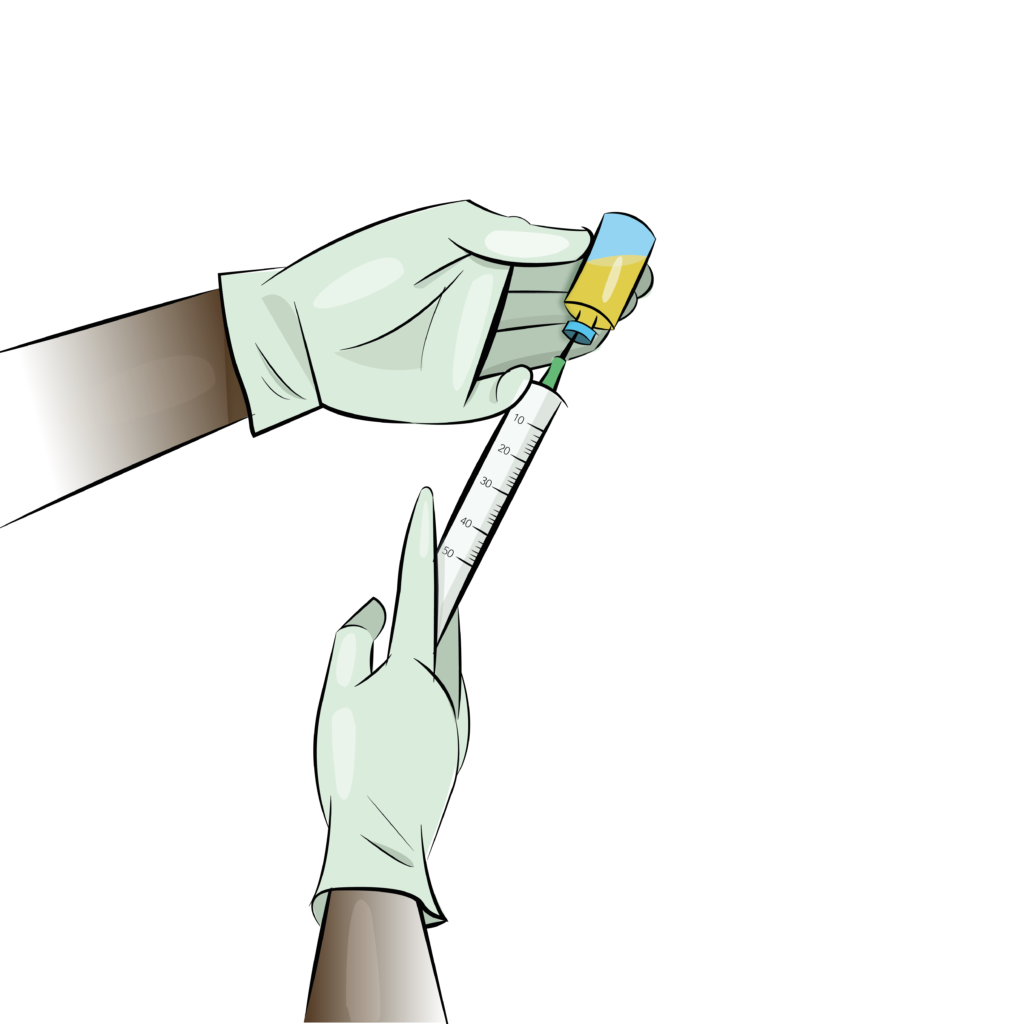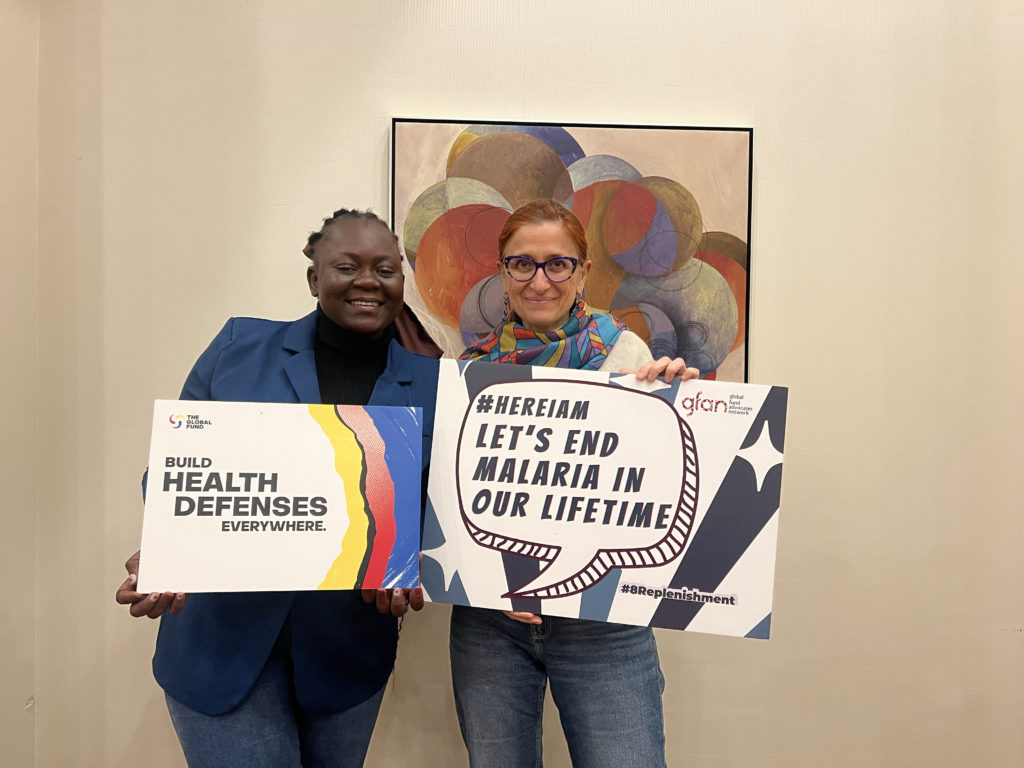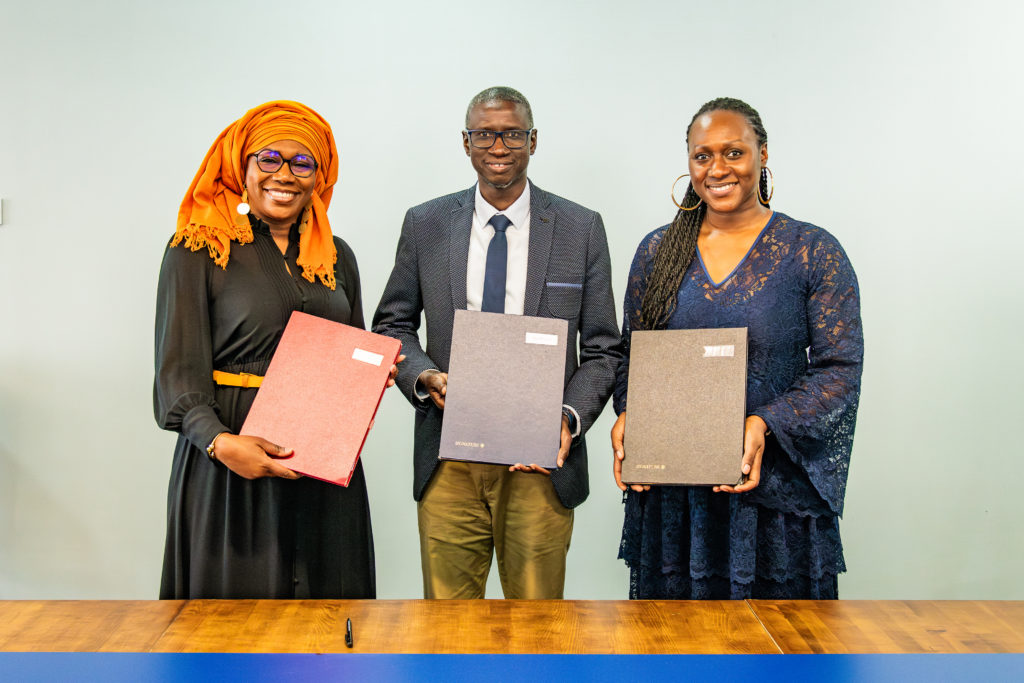Innovating for Africa’s Immunization Future: A Call to Action for Health Research and Collaboration

By Kenneth Prudencio, Programme Officer at Speak Up Africa and Sam Makau, Communications and Advocacy Officer at CHREAD
Dakar, Senegal – April 3rd, 2025
As the world will observe World Immunization Week from April 24th to April 30th 2025, it is critical to keep raising awareness on the challenges faced by immunization in Africa.
The continent imports 90% of its medicines and 99% of its vaccines, which makes it extremely dependent on international support. As it is, Africa can’t prevent the surge of infectious diseases on its own without the aid from other continents’ Health R&D. This foreign support is currently largely fragilized by several factors.
First and foremost, the support from partners like the US is clearly shrinking and this urges the African countries to better orient their domestic resources towards resilient and sustainable health systems. The USAID funding cuts to global health programmes have a tremendous negative impact on immunization in Africa[1]. The US is the third biggest contributor to GAVI (13%) so its cuts are negatively affecting the availability of funding to implement the programs, the delivery of essential vaccines and the maternal and child mortality on the continent. Moreover, GAVI, the main donor of immunization in Africa is transitioning in several countries. The GAVI funding will therefore be considerably reduced, presenting a major challenge for African countries who are largely depending on GAVI to buy vaccines essential for the most vulnerable in Africa.
In the face of this situation, it is clear that the need for our governments to step up and take greater responsibility for the immunization coverage by 2030 in Africa has never been bigger and is urgent. One of the solutions to do so is in our reach: it is strengthening R&D capacity in Africa. Scientists, research institutions in Africa need improved support to be able to deliver high quality vaccines to face immunization challenges of the continent. The lack of support towards African immunization R&D, the inequity challenges to access immunization and the cost of inaction are some of the issues faced by the continent to ensure adequate vaccine coverage for its populations and an effective health system strengthening in Africa.
Health research, development, and innovation are crucial pillars in overcoming these challenges and African coalitions like AHRIDA (African Health Research and Innovation Development Alliance) are instrumental to raise awareness on the challenges and contribute by the relentless advocacy to bridge the gaps in health R&D for immunization on the continent.
Africa Vaccine Autonomy : The strategic importance of amplifying support towards African R&D during the World Immunization Week
World Immunization Week is an opportunity to highlight the importance of R&D in Africa as an essential leverage for disease prevention. African R&D deserves more support as African scientists are able to play a key role in preventing diseases through the production of vaccines tailored to addressing community needs if they are capacitated to do so. In Africa, vaccines are an effective means of tackling diseases and pandemics. We saw this in particular during the Covid 19 pandemic, whose impact was considerably reduced thanks to the vaccines made available to African countries. Similarly, infant mortality was halved in Africa thanks to in-country vaccine interventions.
However, Africa does not participate sufficiently in the health research and development that has enabled these results to be achieved, contributing only 2% of global research. Africa’s lack of participation in research and development makes it the most vulnerable continent to the vagaries and changes in foreign health policies that can limit or halt the provision of vaccines by foreign partners.
Sam Makau, Advocacy Officer at CHReeaD says “The only way African countries are going to face the global health challenges’ impact on immunization is by increasing their domestic budget support towards health R&D. This will ensure an enhanced capacity of African scientists to contribute meaningfully to the vaccine manufacturing for the continent’s autonomy on the matter”. The question of Africa’s vaccine autonomy is therefore at the heart of health research and development issues, as the continent’s self-sufficiency in vaccine manufacturing will depend on the ability of African scientists to produce needed vaccines in optimal infrastructures.
The World Immunization Week is thus an opportunity for us to reiterate the importance of moving from words to action. It is essential to invest massively in R&D infrastructures for vaccine manufacturing in African countries. To this end, we recommend that the African authorities respect their commitment to allocate 1%[2] of their GDP to research and development. This is critical to guarantee that health and immunization R&D is nationally supported and clearly integrated in the budget policy documents.
In addition, it is essential that technical and financial partners scale up now their interventions and further strengthen vaccine manufacturing capacities within the continent. This would have a positive impact on the accessibility of these vaccines to the most vulnerable, a gradual reduction in purchasing costs, a reduction in vaccine dependency and a considerable improvement in African health systems and human capital.
Patent protection: a reminder of the inequity of access to vaccines for Africans
The World Immunization Week is also a reminder of the importance of reducing the inequity to which African populations and scientists are subjected in their access to vaccines. Indeed, the latter are subject to numerous bottlenecks preventing their access to patents protected by international norms. This protectionism undermines the ability of African scientists to develop R&D for vaccines on the continent and increases Africa’s dependency on international aid and R&D.
For Kenneth Prudencio, Program Officer at Speak Up Africa: “Africa’s capacity to produce vaccines adapted to its challenges will only be strengthened if the increase in domestic resources is combined with a real willingness from international partners to support African vaccine production. This goes beyond vaccine donations or support for vaccine purchases. International partners need to be much more intentional in reducing the protectionism around their patents. World Immunization Week is also about this equitable access”.
AHRIDA therefore encourages the sharing of vaccine production knowledge within Africa and at the global level. Indeed, it is essential that African countries with the most advanced immunization research institutes develop strategies or reinforce existing strategies aimed at sharing their knowledge with research institutes already working on immunization R&D on the continent. This would subsequently contribute to developing regional vaccine manufacturing pools on the continent. For their part, we encourage international research institutes to develop their partnerships with research institutes and scientists in Africa, to help create and / or strengthen regional vaccine production pools.
This knowledge sharing is essential if we are to effectively harness the skills of African scientists to improve vaccine coverage in Africa.
The cost of inaction: a permanent threat to Africa’s health and economic development
This Immunization Week is an opportunity for AHRIDA to remind African national decision-makers and international partners that communities will be the first ones affected by the falling behind of immunization in Africa. In view of the US position and GAVI transition, it is to be feared that an absence of meaningful national investment in immunization R&D on the continent will strongly affect Africa’s health and economic development in the short, medium and long term. Indeed, the most affected will be women and children benefitting directly from immunization coverage, meaning that failure to invest in immunization risks undermining the gains made in improving the human capital for the most vulnerable on the continent.
In fact, it is vital that more domestic resources are invested in immunization R&D because it is a sustainable, effective and measurable way of making a real impact on improving immunization coverage in African countries. Our scientists are ready, willing and eager to learn. It is critical that we invest in them because the cost of inaction and lack of investment would be devastating for our health systems.
Taking action: supporting R&D in Africa is a must
As we celebrate World Immunization Week, we are reminded of the essential role that immunization plays in preventing deadly diseases and saving lives. However, the current financial and political landscape, marked by USAID cuts and GAVI’s transition, means that new solutions must emerge.
The World Immunization Week must go beyond celebrating achievements and truly position the role of African scientists at the heart of the debate on finding effective solutions to boost immunization coverage in Africa. AHRIDA believes in this necessary turning point in the way we approach immunization, and above all, health in Africa. It is only through continued innovation and collaboration that we can ensure vaccines reach every child, every woman, every man, everywhere.
[1] Gavi, the Vaccine Alliance, has its billion dollar grant cut by Trump administration
[2] https://archive.uneca.org/sites/default/files/images/Science_Tech/african_countries_and_the_rd_target_draft_1_vk.pdf


